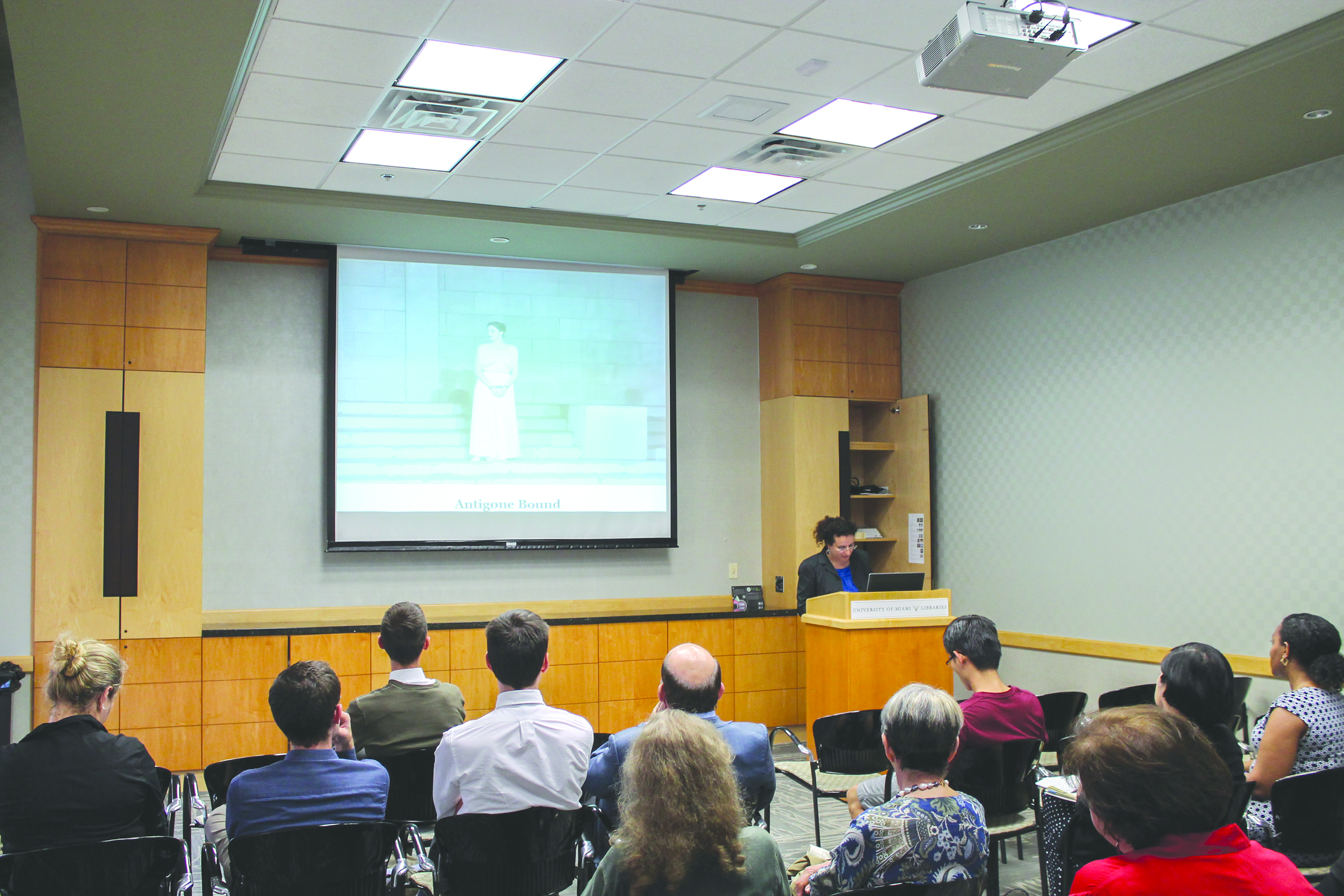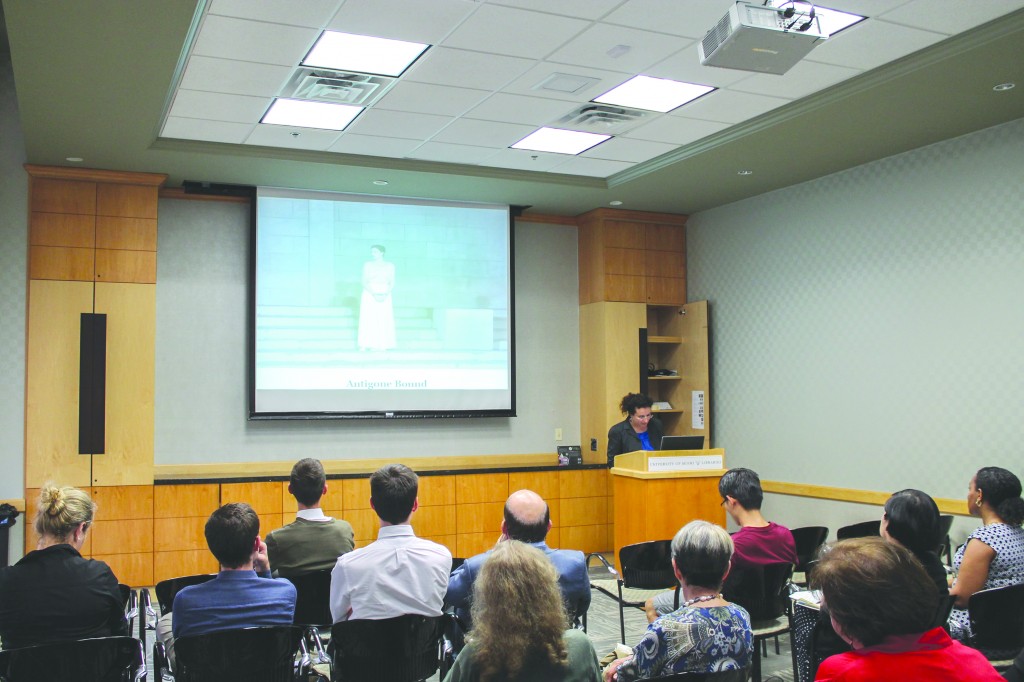

Anastasia Bakogianni presented a fresh take on the nearly 2,500-year-old Greek play “Antigone” Monday at the University of Miami’s Richter Library.
Bakogianni, who teaches courses on Greek literature and the reception of classics at the University of London, gave a lecture titled “Antigone: On Stage and Screen,” and described how Sophocles’ titular heroine is still relevant today.
“The appeal of Greek tragedy is in its colorful characters and how modern practitioners have brought the stories alive on the modern stage,” she said.
In the lecture, Bakogianni contrasted the portrayal of Antigone in the ancient play versus in a 1956 theatrical rendition and in a 1961 Greek film.
In Sophocles’ play, Antigone has two brothers named Eteocles and Polyneices. The two kill each other during a civil war for the throne of Thebes. Antigone’s uncle Creon becomes the new king and decrees that Eteocles will be given the proper burial rites while Polyneices will rot unburied.
Antigone tries to persuade her sister Ismene to help bury Polyneices, but Ismene is a obedient girl who refuses to defy Creon. Determined Antigone decides to single-handedly bury her brother but is caught in the act; for her crime she is buried alive. The play concludes that Antigone could have avoided trouble by obeying male authority like Ismene did.
“The ancient audience might have had doubts about Antigone’s behavior,” said Bakogianni.
In ancient Greece, women were expected to be subservient to men; hence, the ancient Greek audience would have viewed Antigone’s violation of gender roles as a clear transgression.
The 1956 theatrical rendition casts Antigone far more favorably as a brave heroine who, like Joan of Arc and Boudicca, stands up against an authoritarian regime.
Antigone came to symbolize democracy and resonated with Greece’s war of independence against the Ottoman Empire, as well as America’s struggle against communist Soviet Russia during the Cold War.
The 1961 Greek film “Antigone” reinforced such political themes by depicting Creon as a military dictator who oppresses the people of Thebes and Antigone as a vigilante whose love for her family justifies her crime. “You’re meant to take her side,” said Bakogianni.
According to Bakogianni, the movie served as a warning to the government of Greece to remain democratic and not become corrupt with power like Creon.
Students and professors then discussed the relevance of Antigone in modern times.
“I think Antigone is an important and timeless play whose importance is relevant to students and scholars alike,” said Dr. Amina Gautier, a faculty member in the English Department. “Contextualizing Antigone for modern times helps us to think of the difference between moral and political law.”
Bakogianni concluded the event by thanking the professors who invited her to speak at UM, Dr. Wilson Shearin and Dr. John-Paul Russo of the Classics Department and Dr. Louise Davidson-Schmich, the director of the Women’s and Gender Studies Program.





